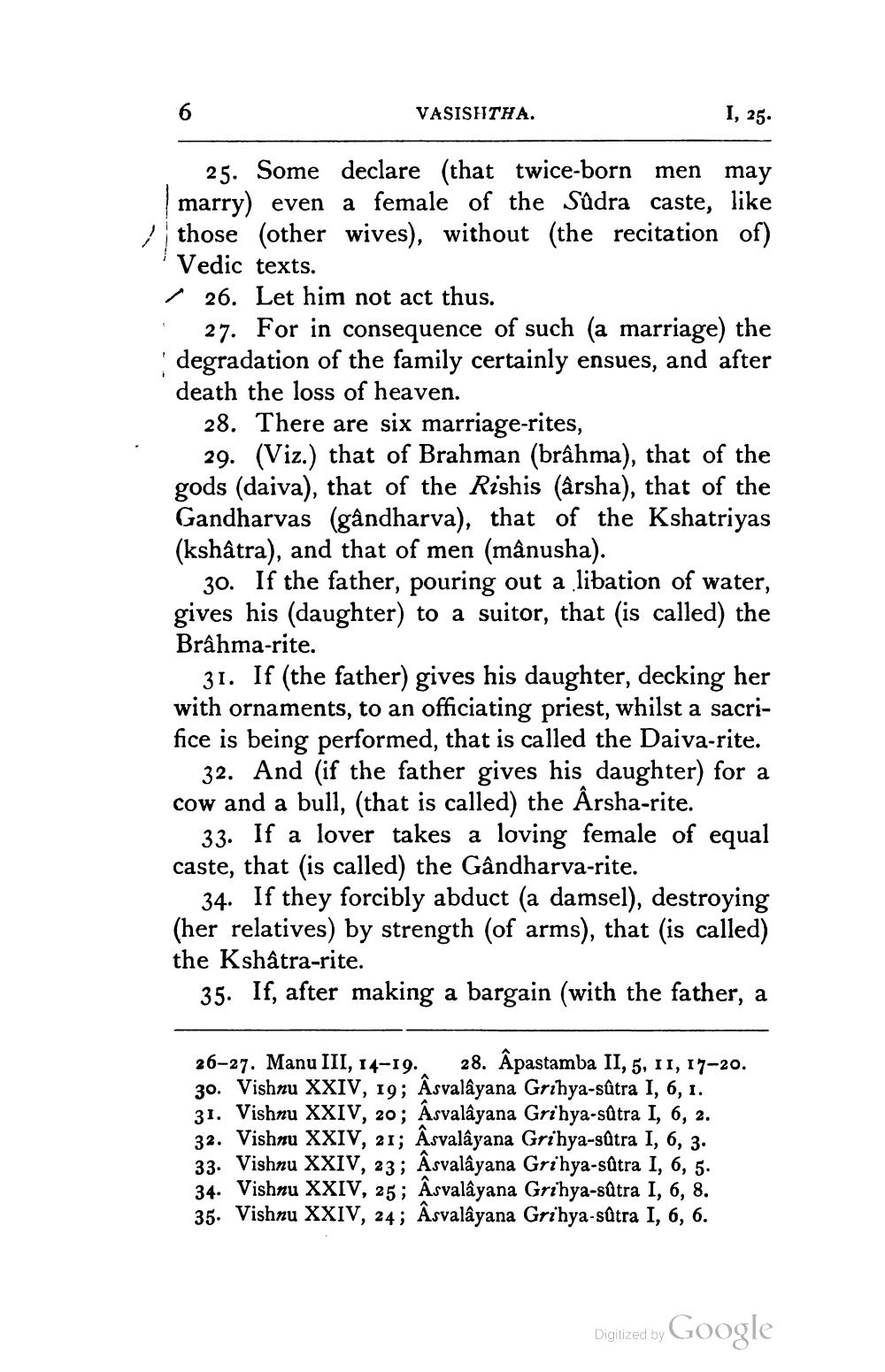________________
VASISHTHA.
1, 25.
25. Some declare (that twice-born men may marry) even a female of the Sûdra caste, like those (other wives), without (the recitation of) Vedic texts.
26. Let him not act thus. ! 27. For in consequence of such (a marriage) the degradation of the family certainly ensues, and after death the loss of heaven.
28. There are six marriage-rites,
29. (Viz.) that of Brahman (brâhma), that of the gods (daiva), that of the Rishis (ârsha), that of the Gandharvas (gândharva), that of the Kshatriyas (kshatra), and that of men (mânusha).
30. If the father, pouring out a libation of water, gives his (daughter) to a suitor, that (is called) the Brâhma-rite.
31. If (the father) gives his daughter, decking her with ornaments, to an officiating priest, whilst a sacrifice is being performed, that is called the Daiva-rite.
32. And (if the father gives his daughter) for a cow and a bull, (that is called) the Arsha-rite.
33. If a lover takes a loving female of equal caste, that (is called) the Gândharva-rite.
34. If they forcibly abduct (a damsel), destroying (her relatives) by strength (of arms), that is called) the Kshâtra-rite.
35. If, after making a bargain (with the father, a
26-27. Manu III, 14-19. 28. Âpastamba II, 5, 11, 17-20. 30. Vishnu XXIV, 19; Asvalâyana Grihya-sâtra I, 6, 1. 31. Vishnu XXIV, 20; Asvalâyana Grihya-sūtra I, 6, 2. 32. Vishnu XXIV, 21; Asvalâyana Grihya-sûtra I, 6, 3. 33. Vishnu XXIV, 23; Âsvalâyana Grihya-sûtra I, 6, 5. 34. Vishnu XXIV, 25; Asvalâyana Grihya-sûtra I, 6, 8. 35. Vishnu XXIV, 24; Âsvalâyana Grihya-sútra I, 6, 6.
Digitized by Google




